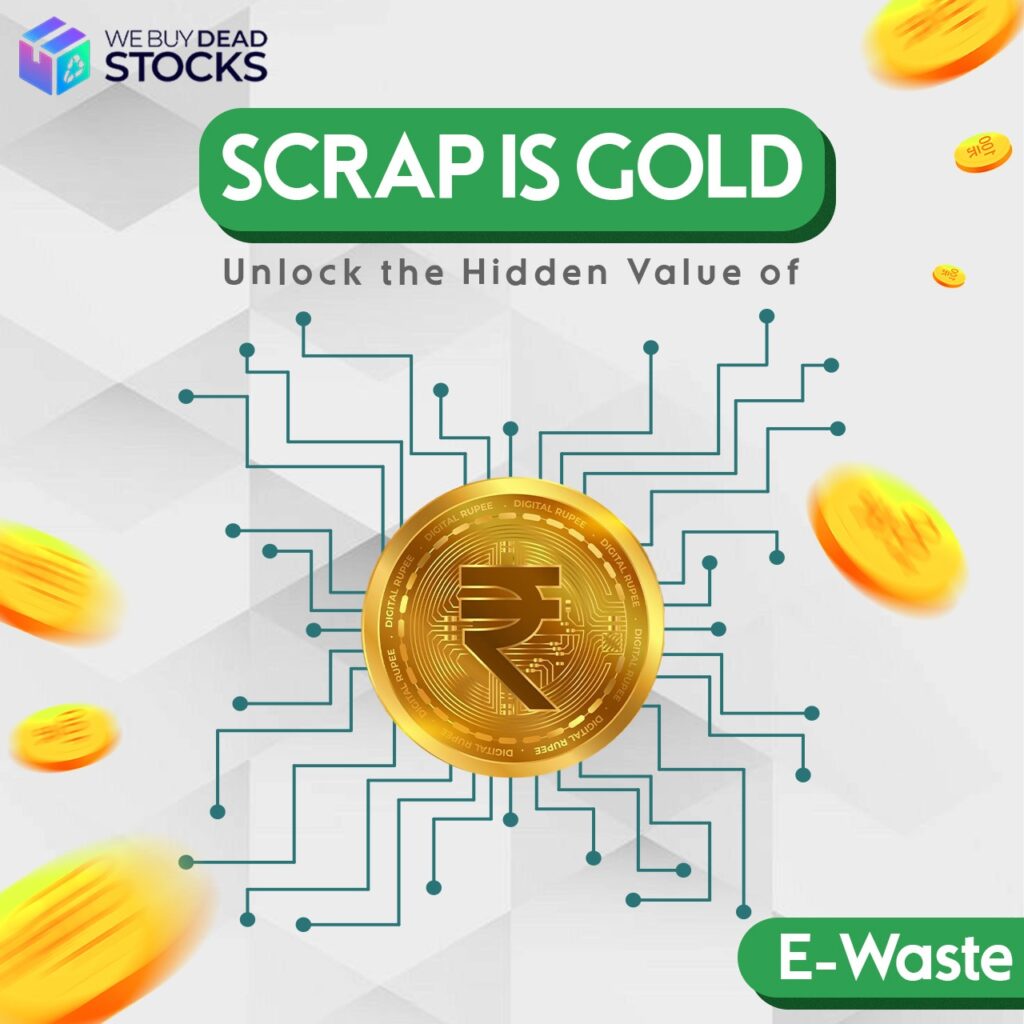In a world driven by technological advancements, electronic devices have become an integral part of our lives. From smartphones and laptops to household appliances, these gadgets power our daily activities. But what happens when these devices reach the end of their lifecycle? They turn into e-waste—a treasure trove often overlooked.
E-waste, or electronic waste, includes discarded electronic devices and components. While most see it as junk, the reality is quite the opposite: e-waste holds immense value. In fact, scrap is gold, both figuratively and literally. Here, we explore the hidden potential of e-waste and why recycling it is crucial for a sustainable future.
The Growing Challenge of E-Waste
The rapid pace of technological innovation has led to shorter device lifespans. According to a report by the Global E-Waste Monitor, the world generated 53.6 million metric tons of e-waste in 2019, and this figure is expected to grow to 74 million metric tons by 2030. The United States alone contributes a significant portion to this staggering number.
E-waste is not just a storage issue; it’s an environmental hazard. Many discarded devices contain toxic materials such as lead, mercury, and cadmium, which can leach into the soil and water when improperly disposed of. Addressing this challenge is vital for protecting our environment and public health.
Why Scrap is Gold
E-waste recycling isn’t just about waste management; it’s an opportunity to unlock the hidden value of discarded electronics. Here’s why:
- Recovery of Precious Metals: Electronic devices contain precious metals like gold, silver, and palladium. For instance, it’s estimated that 1 metric ton of e-waste contains more gold than 17 tons of ore. Recycling these metals reduces the need for mining, conserving natural resources and reducing environmental damage.
- Economic Benefits: The e-waste recycling industry creates jobs and generates revenue. In 2020, the global e-waste recycling market was valued at $43 billion and is projected to grow significantly. By treating Scrap is Gold, businesses can tap into this lucrative market.
- Reducing Environmental Impact: Recycling e-waste prevents harmful substances from polluting the environment. It also reduces energy consumption and greenhouse gas emissions associated with mining and manufacturing new materials.
The Role of Businesses and Individuals
Businesses and individuals play a pivotal role in transforming e-waste into a resource. Organizations like We Buy Dead Stocks specialize in purchasing and recycling e-waste, ensuring valuable materials are recovered and reused. By partnering with such entities, businesses can manage their obsolete electronics responsibly.
On an individual level, small actions can make a big difference. For example:
- Donate or sell old devices to certified recyclers.
- Avoid hoarding outdated electronics; instead, find ways to repurpose or recycle them.
- Educate others about the importance of e-waste recycling.
Government Initiatives and Regulations
Governments worldwide are recognizing the importance of e-waste management. In the United States, regulations like the Resource Conservation and Recovery Act (RCRA) provide guidelines for handling hazardous waste, including e-waste. Additionally, extended producer responsibility (EPR) programs hold manufacturers accountable for the end-of-life management of their products.
Such initiatives encourage innovation in recycling technologies and foster a circular economy where materials are reused, reducing dependency on raw resources.
The Path to Sustainability
E-waste recycling aligns with the broader goal of sustainability. By treating Scrap is Gold, we contribute to a cleaner environment, conserve finite resources, and support economic growth. The transition to a circular economy—where waste is minimized, and resources are continuously reused—is essential for long-term prosperity.
How to Get Started with E-Waste Recycling
If you’re looking to unlock the hidden value of e-waste, here are some actionable steps:
- Identify E-Waste: Take stock of outdated or broken electronic devices in your home or office.
- Find Certified Recyclers: Look for organizations like We Buy Dead Stocks that specialize in recycling e-waste responsibly.
- Educate Yourself and Others: Learn about the materials in your devices and their environmental impact. Share this knowledge to promote responsible disposal.
- Adopt Sustainable Practices: Support businesses and products that prioritize sustainability and use recycled materials.
E-waste is more than just discarded junk; it’s a goldmine of opportunities. By recognizing the value of e-waste and recycling it responsibly, we can address environmental challenges, support economic growth, and move towards a sustainable future. Organizations like We Buy Dead Stocks are leading the way in transforming e-waste into a valuable resource—proving that, indeed, scrap is gold.





